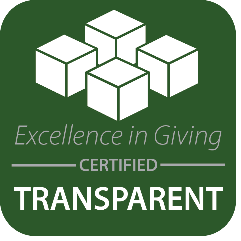Human trafficking is a serious crime that requires a collective effort to combat.
If you have done the research and equipped yourself with the knowledge to recognize the indicators of human trafficking, you are already more informed than the majority of the population in the United States.
If you are unfamiliar with these warning signs, then you should do yourself a favor and familiarize yourself with them. After all, much of the fight against human trafficking involves the ability to identify human traffickers and human trafficking indicators.
But what happens if you find yourself in a situation where you suspect human trafficking? It’s important to know the proper steps to take while ensuring the safety of everyone involved.
This guide breaks down some of the key actions you can take to help in such situations.
Know the Warning Signs
The first step in understanding the indicators of human trafficking is to know that some individuals are more vulnerable to human trafficking than others. While the below list is not a foolproof or complete list of factors, it can help instill some knowledge so you are better prepared to prevent human trafficking from occuring.
Individuals who are the most vulnerable tend to share the following personal factors:
- A history of previous violence
- A minority, typically targeted because of their sexual or gender identity
- A struggle (previous or ongoing) of substance abuse disorders
- Displacement from a home, either because of disaster, poverty, or migration
Understanding these vulnerabilities can enable you to be proactive. But while the above warning signs are attributed to the individuals themselves, there are also factors that are telling of the scenario as a whole.
Again, this is not an exhaustive list, but it sheds some light on whether you may be witnessing a human trafficking situation.
- If a person has no control over their own identification, passport, or personal money
- If a person is requesting permission to perform simple tasks, such as using the restroom on their own If a person has bruises, scarring, or even branding marks
- If a person is exhibiting strong signs of dependency issues
Prioritize Safety First
If you think a human trafficking scenario might be happening, you should report it. Naturally, reporting human trafficking, or more specifically, a human trafficker, is a significant accusation, but any doubt you have should not outweigh the task. Reporting human trafficking (or suspicious activity) is better than staying silent, even if you are not 100% sure of the situation.
That being said, you should prioritize your safety. Do not confront or alert: Avoid directly confronting a suspected trafficker or victim about your suspicions. Your safety and the victim’s safety are paramount.
Leave it to law enforcement: Allow law enforcement to handle the investigation of suspected human trafficking cases. Reporting to the proper authorities is crucial.
Report Suspicious Activity
Call 911 in emergencies: If you believe someone’s life is in immediate danger, call 911 for help.
Follow workplace procedures: If you’re at work, follow your organization’s procedures for reporting such events. Contact human resources or your supervisor for guidance.

Provide Detailed Information
Document what you saw: If you witness suspicious activity, document the details: who is involved, how many people, their genders, behaviors, time of day, location, address, and reasons for suspicion.
Highlight signs: Mention specific signs that raised your suspicions. Detailed information helps law enforcement with their investigation.

Engaging with Suspected Victims
Be subtle: If you encounter someone you believe is a victim of trafficking, ask if they’re okay without indicating your suspicion.
Offer assistance: If they’re visibly distressed, offer help without pushing for information they’re not willing to share. Ensure they know you’re there for support.
Humanize the Person
Show empathy: Treat the person with respect and empathy, engaging in normal conversation.
Avoid victimizing language: Do not treat them like a victim; have conversations about their interests, favorite food, TV shows, or music.

Respond to Victims Asking for Help
Act promptly: If a victim explicitly asks for help, ensure their immediate safety by moving them to a secure location away from the trafficker’s sight.
Contact law enforcement: Call law enforcement right away to report the situation and get the victim proper care.
Report Anonymously
Department of Homeland Security tip line: Report federally related trafficking anonymously through the U.S. Immigrations and Customs Enforcement Homeland Security Investigations Tip Line.
The National Human Trafficking Hotline has a series of numbers that you can reach out to as well, which are listed here. The number for the National Human Trafficking Hotline is 1-888-373-7888. This number is active 24 hours a day, 7 days a week, and has a team of anti-trafficking hotline advocates that are available to take reports and hear what you have to say.
Additionally, the National Human Trafficking Hotline also has a number for texting, since sometimes this is a simpler way to get your information out quickly and conveniently. That number is 233733.
But these are not your only options. The National Human Trafficking Hotline also offers the opton to chat, which can be done at www.humantraffickinghotline.org/chat.
Again, sharing your insights with the hotline is your responsibility if you suspect there might be a human trafficking situation happening. By joining the fight in this way, you could be saving a life and helping law enforcement bring an end to a human trafficker’s attempt to exploit another human being.
Report Online Child Exploitation
Cyber tip line: Report child sexual exploitation witnessed online through the cyber tip line. This information is distributed to appropriate task forces for action.
Join The Fight Today to End Human Trafficking!
Being vigilant about human trafficking is crucial, but it’s equally important to follow the right steps to ensure the safety of everyone involved. Remember, your efforts could contribute to the protection of victims while aiding law enforcement in their fight against human trafficking.
There are many organizations fighting to end human trafficking, from nonprofits to law enforcement to social awareness campaigns, and all methods of attack are valid and crucial. But in addition to reporting human trafficking, you can also join the fight by donating.
Eradicating human trafficking costs money, and by donating, you can help keep these services working, and keep the fight against human trafficking strong and ongoing.
Donate today, and help us put an end to human trafficking once and for all.









